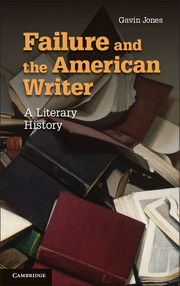Book contents
- Frontmatter
- Dedication
- Contents
- List of Illustrations
- Acknowledgments
- Introduction
- Chapter 1 Falling for Edgar Allan Poe
- Chapter 2 Herman Melville in the Doldrums
- Chapter 3 The Disappointments of Henry David Thoreau
- Chapter 4 Stephen Crane’s Fake War
- Chapter 5 The Double Failure of Mark Twain
- Chapter 6 Sarah Orne Jewett Falling Short
- Chapter 7 The Faltering Style of Henry James
- Conclusion
- Notes
- Index
Chapter 3 - The Disappointments of Henry David Thoreau
Published online by Cambridge University Press: 05 June 2014
- Frontmatter
- Dedication
- Contents
- List of Illustrations
- Acknowledgments
- Introduction
- Chapter 1 Falling for Edgar Allan Poe
- Chapter 2 Herman Melville in the Doldrums
- Chapter 3 The Disappointments of Henry David Thoreau
- Chapter 4 Stephen Crane’s Fake War
- Chapter 5 The Double Failure of Mark Twain
- Chapter 6 Sarah Orne Jewett Falling Short
- Chapter 7 The Faltering Style of Henry James
- Conclusion
- Notes
- Index
Summary
Scott Sandage begins his history of failure in America at the graveside of Henry David Thoreau, listening to the words of Thoreau’s eulogist, his friend and mentor Ralph Waldo Emerson, who reads Thoreau as a symbol of failed ambition:
Had his genius been only contemplative, he had been fitted to his life, but with his energy and practical ability he seemed born for great enterprise and for command: and so I much regret the loss of his rare powers of action, that I cannot help counting it a fault in him that he had no ambition. Wanting this, instead of engineering for all America, he was the captain of a huckleberry party. Pounding beans is good to the end of pounding empires one of these days, but if, at the end of years, it is still only beans!
For Sandage, this moment marks the end of any alternative to the ambitious life, and hence it marks the birth of an American obsession with success that throws into sharp relief the subjective consequences of failure – what Sandage describes beautifully as “identity in the red.” More typically, Thoreau’s Walden (1854) has been viewed as a book that strives to liberate its readers from economic entrapment by creating a higher economics of the mind and spirit, or by expanding the culture’s language of success. Whether we read Thoreau as escaping or revealing the contradictions of capitalism, one point remains clear: Walden has become a crucial text for thinking about the relationship between literature and the economic imperatives of modern life.
- Type
- Chapter
- Information
- Failure and the American WriterA Literary History, pp. 60 - 74Publisher: Cambridge University PressPrint publication year: 2014

